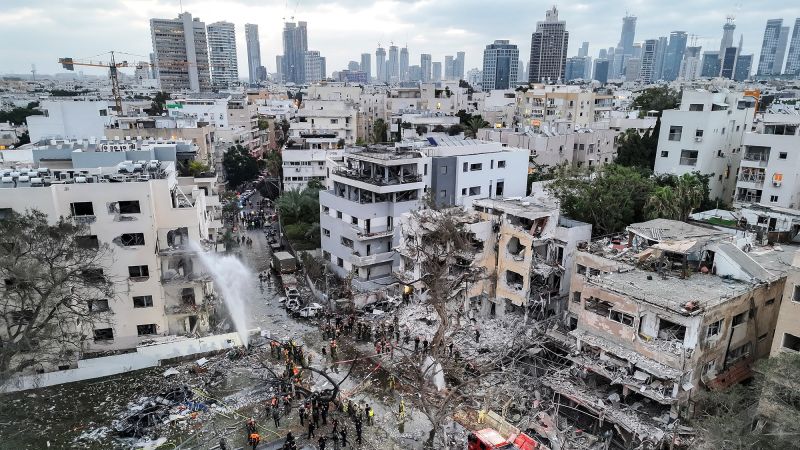Despite stunning early successes inIsrael’s unprecedented strikes on Iran, a weekend of intensive bombardment and retaliation is raising questions about Israel’s exit strategy – how it can end this conflict with its ambitious goals achieved.
WhileIsraeli war planespummel Iranian military and nuclear sites virtually unopposed, dozens of Israelis have been killed and injured in retaliatory Iranian attacks.
Meanwhile, the United States – though helping Israel defend against Iranian missile strikes – is for the moment refusing to take part in attacking Iran, forcing Israel to reassess what its military operations can achieve.
“The end will be diplomatic, not military,” one Israeli source told CNN, adding the Israeli hope is now that its ongoing military action “weakens Iran’s negotiating hand” in any future nuclear talks.
This same theory, that Israeli military action will pressure an adversary to make concessions, has failed to force Hamas in Gaza to cave. Still, the mere mention of Iranian negotiations as a possible outcome suggests a shifting view.
From the start of the unprecedented strikes on Iran last week, Israel made its aims perfectly clear.
The intention, one Israeli military official spelled out to CNN, was to permanently remove the Islamic Republic’s “existential” nuclear and ballistic missile threats.
And no time limit would be set, the official insisted, to fulfil that military objective.
But that ambition, always highly dependent on the United States joining Israel militarily, has now run up against the reality of US reluctance to get drawn into yet another Mideast war.
Sources familiar with the matter tell CNN that Israel has spoken with the US about increasing its level of involvement.
But President Donald Trump remains – at least publicly – reluctant to plunge the US into another Mideast war and has continued to distance himself from the violence.
One US official told CNN that Trump rejected an Israeli plan to kill Iran’s Supreme Leader, Ayatollah Ali Khamenei, and the US president is himself insisting that, far from entering the conflict, he is determined to broker an end to it.
“Iran and Israel should make a deal, and will make a deal, just like I got India and Pakistan to make,” Trump posted on his Truth Social platform on Sunday, referring to his intervention last month in a brief confrontation between the two South Asian nuclear neighbors over the disputed territory of Kashmir.
But unlike both India and Pakistan, Israel needs America’s firepower, not its diplomatic intervention.
Despite Israel’s success in killing key nuclear scientists, as well as striking enrichment facilities, inflicting lasting damage on Iran’s nuclear program is still beyond its capabilities.
Some of the most important locations are buried deep underground, such as the Fordow enrichment facility in northern Iran, which is built inside a mountain.
Without US military involvement, including logistics support and bunker busting firepower, Iran’s capabilities could survive even a prolonged Israeli pounding.
There’s another flaw with the Israeli strategy too.
Even if every facility were destroyed, they could eventually be rebuilt by a regime that has institutional nuclear know-how. Moreover, if the Iranian regime survives the current onslaught it may understandably calculate that a nuclear deterrent, not a new nuclear deal, is its best defense against future attack.
Mindful of this, the Israeli prime minister, Benjamin Netanyahu, has repeatedly called on Iranian citizens “to act, to rise up” and topple their government.
But intensive bombing campaigns have a way of rallying people around even the most unpopular regimes. Interviews conducted by CNN inside Iran suggest that even long-oppressed Iranians are now even more furious with Israel than they are with their own unpopular leaders.
Of course, it is less than a week into the escalating conflict and much could still change.
Iranians could rise up; nuclear negotiations could resume; President Trump could even change his mind.
But not for the first time, Israel is engulfed in a conflict with no clear exit strategy.
Its ongoing war in Gaza, launched in 2023 after the October 7 attacks, was aimed at destroying Hamas and securing the release of all the hostages being held, but there is still no clear plan for what will follow.
Now, Israelis face yet another grinding, dangerous war of attrition, with no time limits and no clear end.
